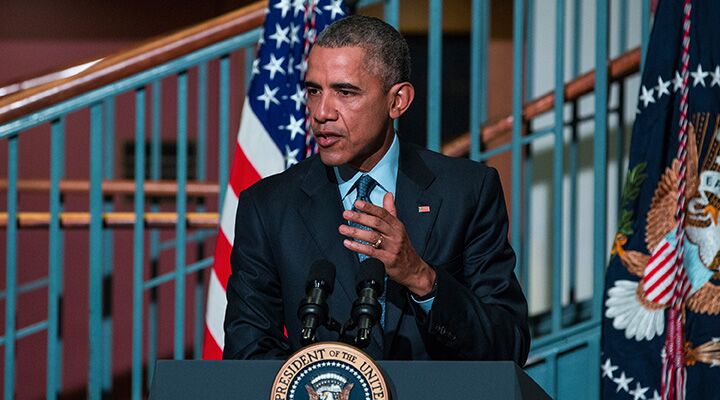
President Obama Temporarily Halts Removal of Troops in Afghanistan
United States President Barack Obama has decided to maintain 9,800 American troops in Afghanistan until late 2016. Instead of an embassy-only presence, troops will continue to train “Afghan forces and [go] after al Qaeda,” according to a statement from the president on October 15.
“Afghan forces are still not as strong as they need to be,” said President Obama, confirming the extremely fragile position the country is in. On October 13, the Afghan National Army affirmed that it regained control of the major city of Kunduz from Taliban forces. The fight and brief control of Kunduz for 15 days was the biggest Taliban victory since 2001.
The city of Kunduz has a bloody history with the Taliban and was the last major city ripped from its grasp after American troops entered in 2001. The Taliban began its most recent major assault on the city in April and claimed it had gained control in late June. While the Taliban was reported to be vastly outnumbered, local militia and government troops were forced to retreat or surrender after the Afghan government failed to successfully dispatch reinforcements and supplies.
During the United State’s peak involvement, there were 100,000 troops on Afghan soil. As American troops have dwindled to 9,800, the Taliban has been slowly regaining territory. According to the New York Times, recent advances have gone mostly unreported.
Their advance has gone unreported because most American forces have left the field, and officials in Kabul have largely refused to talk about it. The Afghan ministries have not released casualty statistics since an alarming rise in army and police deaths last year.
At one point, there were around 800 U.S.-led military bases across the country. Commander of the mission in Afghanistan, Gen. John Campbell, says there are now only “a couple dozen.” The consequence, he said, is that we “lose eyes and ears up here that give me indications and early warning to potential enemy movements [and] enemy attacks.”
For the remaining Afghan forces, warnings of Taliban movements are essential. The United Nations says the Taliban controls or contests one fifth of the country and has infiltrated more Afghan territory than at any point since 2001.
Because the United States has been withdrawing troops since 2011, Afghanistan has turned to an old partner—Russia. Afghan President Ashraf Ghani asked Moscow for artillery, small arms and Mi-35 helicopter gunships for his struggling military. Russia plans to sign a contract for the delivery this month. Afghanistan needs the “support of Russia, just like Syria,” said a pro-Kremlin leader of Russia’s Chechen Republic Ramzan Kadyrov.
This move follows the general trend Trumpet readers will find familiar. As the United States scrambles to pull out of the Middle East, Russia is moving in to fill the void.
Politicians will continue to debate finances, lives lost, and the moral justification of military action by the United States. But one thing is sure: America has not won this war.
To make this statement now is easy. To predict it at the start of the war, as editor in chief Gerald Flurry did, would have been harder. Yet 50 years previous, in 1961, Herbert W. Armstrong wrote that “America has won its last war.” If you would like to learn more about Herbert W. Armstrong’s accurate predictions, you can read our free booklet He Was Right.
